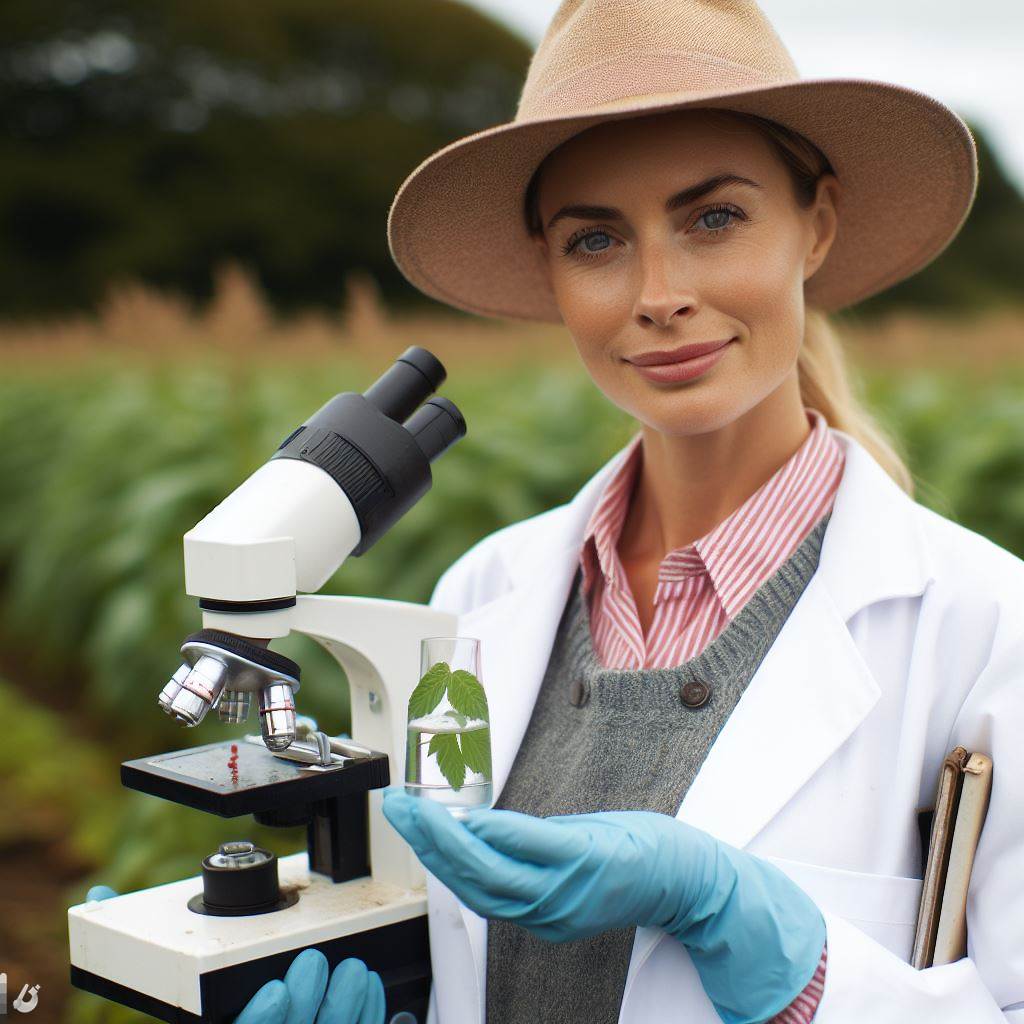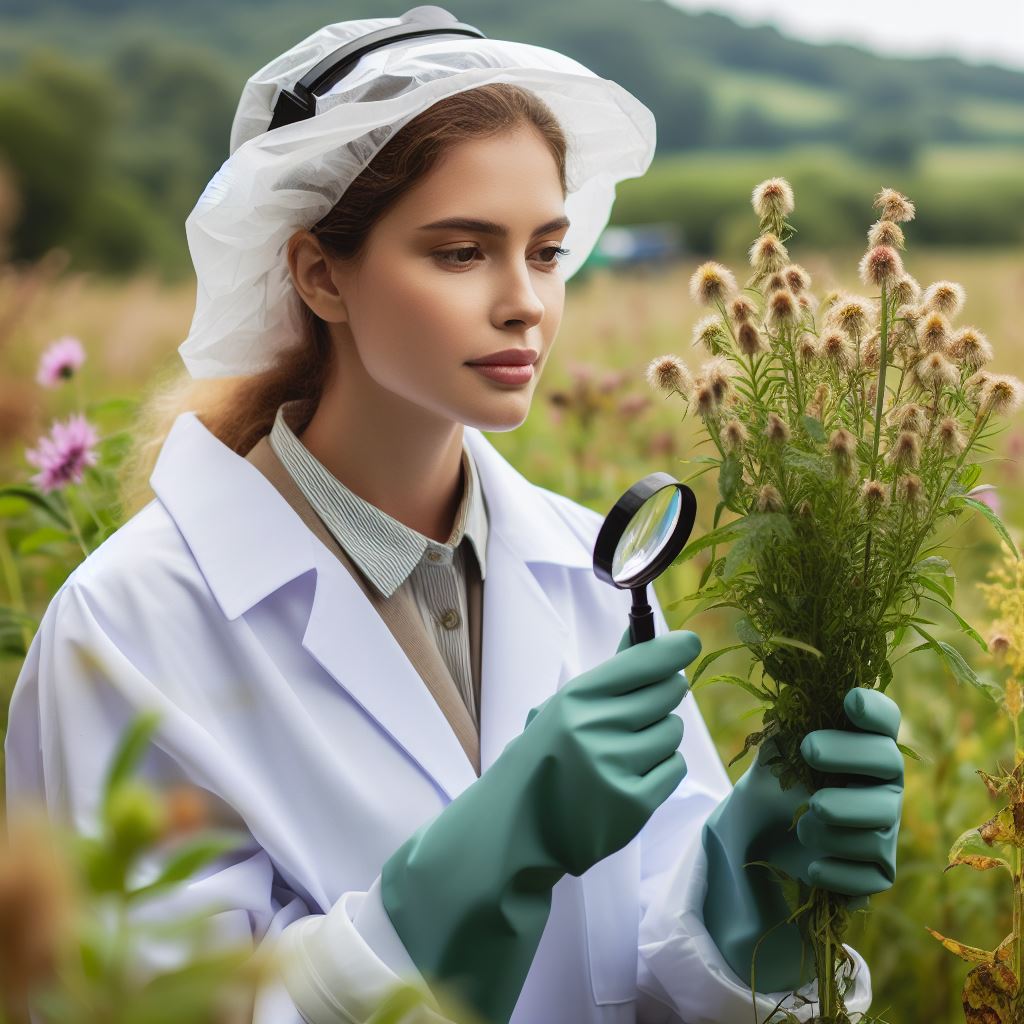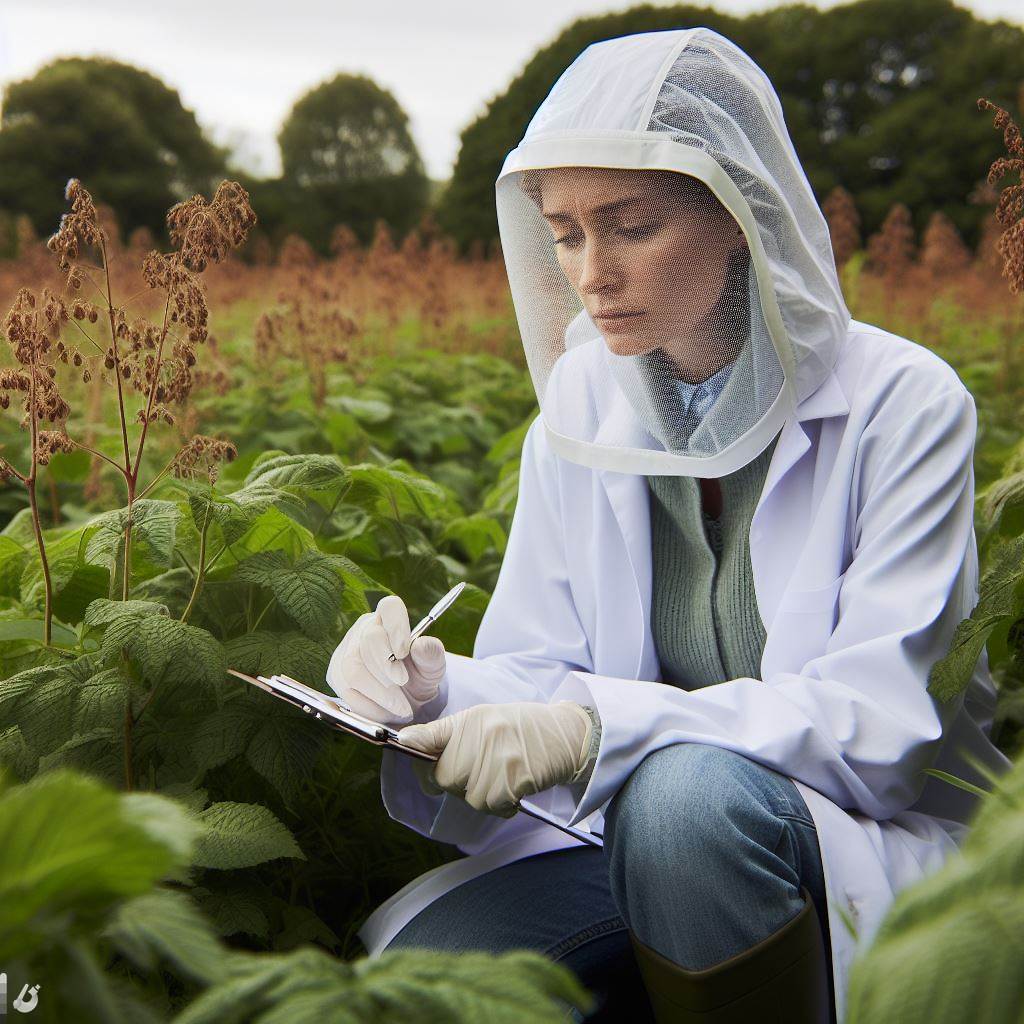Introduction
Overview of environmental science
Environmental science examines how organisms interact with their environment and studies the impact of human activities on ecosystems.
Importance of women’s representation in the field
Increasing women’s representation in environmental science brings diverse perspectives and enhances problem-solving in sustainability and conservation efforts.
Exploring the current status and contributions of women in UK’s environmental science sector
This section aims to delve into the current status and valuable contributions made by women in the field of environmental science in the United Kingdom.
Environmental science encompasses various disciplines like ecology, geology, atmospheric sciences, and conservation biology.
It plays a crucial role in understanding and mitigating the effects of climate change, pollution, and environmental degradation. Women have consistently contributed to this field, but their representation remains limited.
Throughout history, women have made significant contributions to environmental science, often in the face of gender-based challenges.
From Rachel Carson’s groundbreaking work on pesticides to Jane Goodall’s research on primates, women have shaped our understanding of the natural world.
In the United Kingdom, women’s representation in environmental science has been steadily increasing. They hold important positions in academic institutions, research organizations, and government agencies.
Their research spans climate change adaptation, wildlife conservation, and sustainable resource management.
Examples of influential female scientists include Ann Glover, former Chief Scientific Adviser to the President of the European Commission, and Sue Hartley, director of the York Environmental Sustainability Institute.
These women have paved the way for future generations of female scientists, showing that gender is not a barrier to success in environmental science.
However, there is still progress to be made in achieving full gender equality and promoting diverse perspectives in the field.
In the following sections, we will explore the challenges faced by women in UK environmental science, highlight their achievements, and discuss the initiatives in place to empower and support them.
Historical Perspective
Early women pioneers in environmental science
- Rachel Carson, through her book “Silent Spring,” sparked environmental consciousness and concern.
- Ellen Swallow Richards, the first female student at MIT, contributed to the field of sanitary chemistry.
- Marjory Stoneman Douglas advocated for the preservation of the Florida Everglades.
- Mary E. Snow was the first female professor of meteorology and studied the effects of air pollution.
Challenges faced by women in entering the field
- Women initially faced discrimination and exclusion from traditional male-dominated scientific institutions.
- Limited funding and resources were available for women pursuing scientific research.
- Stereotypes and societal expectations posed barriers for women aiming to excel in environmental science.
- The lack of representation hindered opportunities for women to enter and advance in the field.
Impact of women’s contributions on the field’s development
- Women’s perspectives and insights have enriched the study of environmental science, bringing new ideas and approaches.
- Women have unpacked gender biases and made important strides in ensuring equal opportunities for future generations.
- Their achievements have paved the way for more women to pursue careers in environmental science.
- Women’s involvement has led to a more holistic and comprehensive understanding of environmental issues.
- Their contributions have fostered collaborations and interdisciplinary approaches to addressing environmental challenges.
To sum it up, women have played a significant role in shaping the field of environmental science.
From early pioneers who defied societal norms to modern trailblazers, their contributions have been invaluable.
Although they faced numerous challenges, their determination and resilience paved the way for progress.
Today, more women are entering the field, contributing unique perspectives that enhance environmental research.
It is important to recognize and celebrate the achievements of these remarkable women.
By doing so, we inspire future generations to follow in their footsteps and continue building a sustainable future.
Personalized UK Career Consulting
Receive tailored career guidance designed just for you. Get actionable steps and expert support to boost your career in 1-3 days. Take control of your career now.
Get StartedRead: Emerging Specialties in Chemistry in the UK
Current Status of Women in Environmental Science
Statistics on women’s enrollment in environmental science programs
- Women’s enrollment in environmental science programs across the UK has seen a steady increase.
- According to recent statistics, women represent around 52% of students enrolled in undergraduate environmental science programs.
- However, the representation of women tends to decrease at higher levels of education, such as postgraduate and doctoral programs.
- This underrepresentation of women in advanced programs suggests the existence of barriers that limit their progression in the field.
Representation of women in research and academia
- Despite advancements, women are still underrepresented in research and academia within the environmental science field.
- Studies reveal that women hold only around 30% of academic positions in environmental science departments.
- This lack of representation can be attributed to various factors, including biases, stereotypes, and societal expectations.
- Efforts are being made to address these disparities and promote gender equality in research and academia.
Gender gaps in leadership roles and policies
- Women continue to face significant gender gaps when it comes to leadership roles and policies in environmental science.
- The number of women holding top leadership positions, such as department heads or research directors, remains low.
- Additionally, policies and decision-making processes in environmental science are often male-dominated, marginalizing female perspectives.
- Closing these gender gaps is crucial for promoting diversity and ensuring equal opportunities for women in the field.
Initiatives and organizations supporting women in the field
- Numerous initiatives and organizations have emerged to support and empower women in environmental science.
- One such organization is Women in Environmental Science (WES), which provides mentoring and networking opportunities for women.
- The Athena SWAN (Scientific Women’s Academic Network) initiative recognizes and promotes gender equity in science, including environmental science.
- These initiatives play a vital role in empowering women, advocating for change, and creating a more inclusive environment for all.
In a nutshell, while progress has been made, there is still work to be done to improve the status of women in environmental science.
Efforts should focus on increasing women’s representation in advanced programs, promoting gender equality in research and academia.
Closing gender gaps in leadership roles, and supporting initiatives and organizations that uplift women in the field.
By doing so, the environmental science community can tap into the full potential of diverse perspectives, fostering innovation and advancing sustainable solutions.
Read: Chemistry’s Role in UK’s Environmental Efforts
Gain More Insights: Navigating UK’s Environmental Policy Landscape
Contributions of Women in UK’s Environmental Science
Case studies of notable women environmental scientists
- Dr. Jane Goodall, a primatologist, revolutionized our understanding of animal behavior through her research on chimpanzees.
- Professor Dame Anne Glover made significant contributions to the field of biodiversity and ecosystem functioning.
- Dr. Emily Shuckburgh, a climate scientist, played a crucial role in analyzing and predicting the impact of climate change.
- Dr. Sylvia Earle, also known as “Her Deepness,” is an acclaimed marine biologist who dedicated her life to ocean conservation.
- Professor Caroline Dean transformed our understanding of plant biology through her research on how plants respond to environmental cues.
Research breakthroughs and advancements attributed to women
- Dr. Rosalind Franklin’s groundbreaking work on DNA structure paved the way for advancements in genetics and biotechnology.
- Professor Angela McLean’s research on infectious diseases greatly contributed to our understanding of disease transmission and control.
- Dr. Jocelyn Bell Burnell’s discovery of pulsars revolutionized our understanding of the universe and astrophysics.
- Dr. Katherine Johnson’s calculations were instrumental in NASA’s success in sending astronauts to the moon.
- Professor Julia Slingo advanced our understanding of weather and climate through her research in atmospheric science.
Environmental policy influence and advocacy efforts
- Dr. Vandana Shiva, an environmental activist, campaigned against genetically modified crops and advocated for sustainable agriculture.
- Baroness Bryony Worthington played a key role in shaping the UK’s Climate Change Act and advocating for renewable energy.
- Dr. Emily Penn founded eXXpedition, an all-female research voyage, to raise awareness about plastic pollution in the oceans.
- Lucy Siegle, a journalist and writer, promotes sustainable fashion and encourages consumers to make more ethical choices.
- Holly Gillibrand, a young climate activist, gained international attention for her efforts in mobilizing young people for climate action.
These remarkable women have not only contributed to the field of environmental science but also paved the way for future generations of female scientists.
Through their groundbreaking research, advocacy, and policy influence, they have made significant strides towards a more sustainable and environmentally conscious world.
It is important to celebrate their achievements and recognize the invaluable contributions of women in UK’s environmental science.
Together, we can continue to promote gender equality and empower more women to pursue careers in this crucial field.
Read: Chemistry Internships: UK Students’ Guide

Overcoming Challenges and Advancing Opportunities
Strategies for attracting and retaining women in environmental science
- Creating supportive and inclusive environments where women feel valued and respected.
- Offering flexible work arrangements and family-friendly policies to promote work-life balance.
- Providing mentorship programs and career development opportunities specifically tailored for women.
- Promoting scholarships, grants, and funding opportunities to encourage women to pursue higher education in environmental science.
- Organizing workshops and conferences to showcase successful women in the field and inspire aspiring female scientists.
Addressing gender bias and promoting inclusivity in the workplace
- Implementing training programs to educate employees on unconscious bias and promoting equal treatment.
- Establishing clear policies and protocols to address and prevent gender-based discrimination and harassment.
- Encouraging diversity in leadership roles and decision-making processes to ensure balanced representation.
- Regularly reviewing and evaluating recruitment and promotion practices to identify and eliminate any gender biases.
- Fostering a culture of respect, empathy, and open communication to create a safe and inclusive work environment.
Inspiring future generations of women in the field
- Collaborating with schools and educational institutions to introduce environmental science early on in the curriculum.
- Providing mentorship and internship opportunities for young girls interested in environmental science.
- Organizing outreach programs to raise awareness about the diverse career options available within the field.
- Sharing success stories of women scientists through media platforms and social networks.
- Empowering girls by promoting confidence, resilience, and self-belief in pursuing careers in environmental science.
Collaborations and networks for professional growth and mentorship
- Establishing professional networks and organizations dedicated to supporting women in environmental science.
- Creating platforms for knowledge-sharing, collaboration, and mentorship within the field.
- Organizing conferences, seminars, and workshops to facilitate networking and professional development opportunities.
- Encouraging peer mentoring and the formation of support groups to provide guidance and encouragement.
- Partnering with industry leaders and organizations to create internship and job placement programs for women in environmental science.
By implementing these strategies, addressing gender bias, and fostering inclusivity, the field of environmental science can attract and retain more women.
Inspiring future generations and providing avenues for professional growth will ultimately lead to a more diverse and thriving field that benefits both women and the environment.
Read: UK Chemists: Innovations and Inventions
Learn More: Postdoctoral Paths in UK Scientific Research
Conclusion
Recap of the status and contributions of women in UK’s environmental science
As highlighted throughout this blog post, women in the field of environmental science in the UK have made significant strides in recent years.
Women are increasingly joining the field and making valuable contributions to research, policy-making, and conservation efforts.
Their dedication and expertise have been instrumental in addressing pressing environmental challenges.
Importance of continued support and advancements for gender equality in the field.
It is crucial to recognize the importance of gender equality in environmental science and to continue supporting and advancing women in the field.
Equal representation and opportunities for women not only promote diversity and inclusivity but also lead to more innovative and effective solutions for environmental issues.
By empowering women, society as a whole benefits from their unique perspectives and expertise.
Final thoughts and call to action for promoting women’s participation in environmental science in the UK
In the end, it is evident that women play a vital role in the progress of environmental science in the UK.
However, there is still work to be done to overcome existing barriers and biases.
To promote women’s participation, it is essential to provide equal access to education, mentorship, funding, and leadership opportunities.
Additionally, creating a supportive and inclusive environment within academic and professional institutions is crucial.
By actively encouraging and empowering women in environmental science, we can ensure a prosperous and sustainable future for all.
[E-Book for Sale]
500 Cutting-Edge Tech Startup Ideas for 2024 & 2025: Innovate, Create, Dominate
$19.99 • 500 Tech Startup Ideas • 62 pages
You will get inspired with 500 innovative tech startup ideas for 2024 and 2025, complete with concise descriptions to help you kickstart your entrepreneurial journey in AI, Blockchain, IoT, Fintech, and AR/VR.




